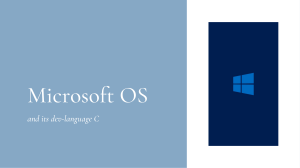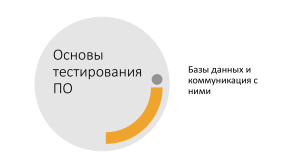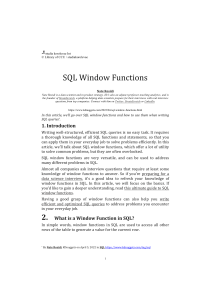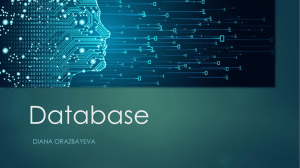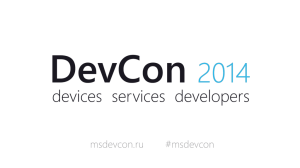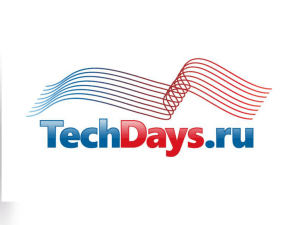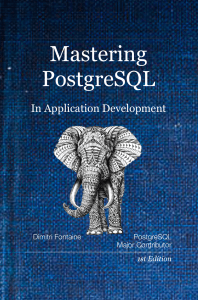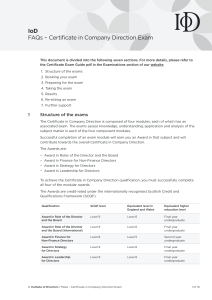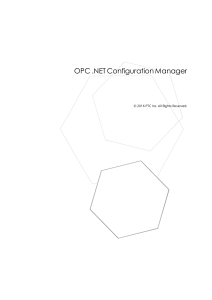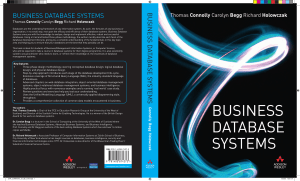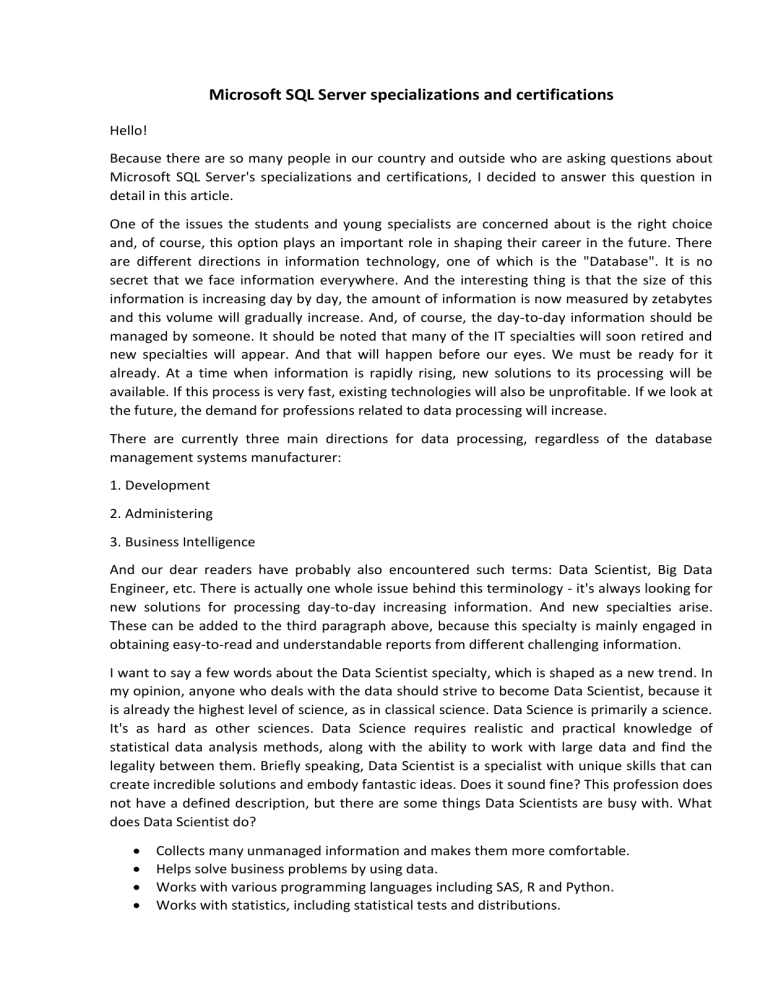
Microsoft SQL Server specializations and certifications Hello! Because there are so many people in our country and outside who are asking questions about Microsoft SQL Server's specializations and certifications, I decided to answer this question in detail in this article. One of the issues the students and young specialists are concerned about is the right choice and, of course, this option plays an important role in shaping their career in the future. There are different directions in information technology, one of which is the "Database". It is no secret that we face information everywhere. And the interesting thing is that the size of this information is increasing day by day, the amount of information is now measured by zetabytes and this volume will gradually increase. And, of course, the day-to-day information should be managed by someone. It should be noted that many of the IT specialties will soon retired and new specialties will appear. And that will happen before our eyes. We must be ready for it already. At a time when information is rapidly rising, new solutions to its processing will be available. If this process is very fast, existing technologies will also be unprofitable. If we look at the future, the demand for professions related to data processing will increase. There are currently three main directions for data processing, regardless of the database management systems manufacturer: 1. Development 2. Administering 3. Business Intelligence And our dear readers have probably also encountered such terms: Data Scientist, Big Data Engineer, etc. There is actually one whole issue behind this terminology - it's always looking for new solutions for processing day-to-day increasing information. And new specialties arise. These can be added to the third paragraph above, because this specialty is mainly engaged in obtaining easy-to-read and understandable reports from different challenging information. I want to say a few words about the Data Scientist specialty, which is shaped as a new trend. In my opinion, anyone who deals with the data should strive to become Data Scientist, because it is already the highest level of science, as in classical science. Data Science is primarily a science. It's as hard as other sciences. Data Science requires realistic and practical knowledge of statistical data analysis methods, along with the ability to work with large data and find the legality between them. Briefly speaking, Data Scientist is a specialist with unique skills that can create incredible solutions and embody fantastic ideas. Does it sound fine? This profession does not have a defined description, but there are some things Data Scientists are busy with. What does Data Scientist do? Сollects many unmanaged information and makes them more comfortable. Helps solve business problems by using data. Works with various programming languages including SAS, R and Python. Works with statistics, including statistical tests and distributions. Uses analytical techniques such as Machine Learning, Deep Learning, and text analysis. Presenting reports in a beautiful, easy-to-understand form with visualization tools and so on. However, it does not mean that the remaining two directions: Programming and Administering are not currently relevant. These specialties are currently in great demand, and you just have to learn new knowledge about changes in technology, for example: Cloud technologies need to be closely studied. Now let's go to the main issue. The most commonly asked questions: What kind of exam should I take for Microsoft certificate? I will not talk about what is it and what kind of Microsoft certificates are there. Find out more information here: Microsoft Certification There are three types of certificates that interest us because the rest is already retired: • MTA - Microsoft Technology Associate • MCSA - Microsoft Certified Solutions Associate • MCSE - Microsoft Certified Solutions Expert Moreover, of course, you will need to pass various exams to get these certificates. It should be noted that currently there are a total of 133 examinations for Microsoft products. The whole list can be found here: Microsoft Certification exam list There are a total of 21 exams for the Microsoft SQL Server platform and related technologies: 1 2 3 4 5 6 7 8 9 10 11 12 13 14 15 16 17 18 19 20 21 98-364: Database Fundamentals 70-461: Querying Microsoft SQL Server 2012/2014 70-462: Administering Microsoft SQL Server 2012/2014 Databases 70-463: Implementing a Data Warehouse with Microsoft SQL Server 2012/2014 70-464: Developing Microsoft SQL Server 2012/2014 Databases 70-465: Designing Database Solutions for Microsoft SQL Server 70-466: Implementing Data Models and Reports with Microsoft SQL Server 70-467: Designing Business Intelligence Solutions with Microsoft SQL Server 70-473: Designing and Implementing Cloud Data Platform Solutions 70-475: Designing and Implementing Big Data Analytics Solutions 70-761: Querying Data with Transact-SQL 70-762: Developing SQL Databases 70-764: Administering a SQL Database Infrastructure 70-765: Provisioning SQL Databases 70-767: Implementing a Data Warehouse using SQL 70-768: Developing SQL Data Models 70-773: Analyzing Big Data with Microsoft R 70-774: Perform Cloud Data Science with Azure Machine Learning 70-775: Perform Data Engineering on Microsoft Azure HDInsight 70-776: Perform Big Data Engineering on Microsoft Cloud Services (beta) 70-778: Analyzing and Visualizing Data with Microsoft Power BI (beta) Two of them: 70-776 and 70-778 are in the Beta stage and the remaining 19 examinations are ready. When you visit Microsoft's SQL Server certification site for an existing page, we come across an image: Microsoft SQL Server certifications As you can see, there are three levels here. Microsoft SQL Server Startup and Top Level Certificates available. The start certificate is "MTA - Microsoft Technology Associate" certificate. The highest level is currently MCSE - Microsoft Certified Solutions Expert. It should be noted that until January 1, 2014, the highest-level certificates were Microsoft Certified Master (MCM), Microsoft Certified Architect (MCA) and Microsoft Certified Solutions Master (MCSM) certificates. To take them you had to spend a large sum (approximately $ 20,000) and stay in the United States for two weeks. It was one of the most difficult IT exams. So far, there are hundreds of professionals who have received this certificate. Here's a list of great Masters: Microsoft Certified Master and Architect: Microsoft SQL Server All Microsoft Certified Master (MCM), Microsoft Certified Architect (MCA), and Microsoft Certified Solutions Master (MCSM) certification exams were retired on January 1, 2014. There are MCSA - Microsoft Certified Solutions Associate certifications for SQL Server 2012/2014 and SQL Server 2016. SQL Server 2012/2014 will remain on for a while because many systems are still use SQL Server 2012/2014 and did not yet migrate to SQL Server 2016. Creating new certifications for SQL 2017 release is also may be expect. There is a big difference between SQL Server 2012/2014 and SQL Server 2016 certifications. The difference is that the SQL Server 2012/2014 version not divided into specialties. MCSA certified specialist should have knowledge of all three technologies (programming, administration and BI) as mentioned above. It has both advantages and disadvantages. The advantage is that the SQL Server expert has all knowledge on technology. For example if the administrator has knowledge of programming, it can be a great help for performance improvements. The disadvantage is that getting this certificate is very difficult, and it is essential that the developer be well aware of administering. SQL Server 2016 divided into specialties: programming, administration, and BI. So let's start. 1. We decided to take 98-364: Database Fundamentals exam and receive the "MTA - Microsoft Technology Associate" certificate. There is no need to take any exam before that. The test runs both beginner-level questions on both Transact-SQL and Administration. Preparation period is usually 3 months. Frequently asked questions and answers: • Is it important to take this certificate as your first step? Answer: No, it is not important. • Is this exam important for obtaining other certificates? Answer: No, it is not important. • Do I receive MCP (Microsoft Certified Professional) certificate by this exam? Answer: No, just to get MCP (Microsoft Certified Professional) certification is just enough to take one of the 70's exams. 2. We would like to get "MCSA: SQL Server 2012/2014" certificate for SQL Server 2012/2014. To obtain this certificate, you will need to take three exams: 70-461 - Transact-SQL, 70-462 Administration and 70-463 on DW and Integration Services. Frequently asked questions and answers: • Is it important to take any certificate before obtaining this certificate? Answer: No, it is not important. • Is it necessary to take all three exams? Yes, all three exams should be taken to obtain a certificate. • Is it important to have an experience? Not important, but desirable. Exams will have practicespecific questions. • How long should I prepare to receive this certificate? If you take approximately 3 months for each exam, you can get a certificate in 9 months. • Can I prepare for exams with books and video tutorials? Yes, you can. However, keep in mind that, since there are questions of practice, you must practice at least in labs. • Is it important to take part in any official course to get this certificate? Answer: Not important, but desirable. You will receive official literature and real lab tests at the official Microsoft courses. This can be very helpful for you to take the exam. 3. We would like to receive to get "MCSA: SQL 2016" certificate for SQL Server 2016. The SQL Server 2016 trends are completely different and there is a certificate for all three directions: programming, administration, and BI. Frequently asked questions and answers: • Is it important to take any certificate before obtaining this certificate? Answer: No, it is not important. • How many tests should I take to obtain this certificate? Answer: You have to take 2 exams. You can select one of the following directions and exams: Specialty 1: MCSA: SQL 2016 Database Development: 70-761 - Querying Data with Transact-SQL 70-762 - Developing SQL Databases Specialty 2: MCSA: SQL 2016 Database Administration: 70-764 - Administering a SQL Database Infrastructure 70-765 - Provisioning SQL Databases Specialty 3: MCSA: SQL 2016 Business Intelligence Development: 70-767 - Implementing a SQL Data Warehouse 70-768 - Developing SQL Data Models There are also two MCSA certificates available. Although these are not directly related to SQL Server, they are new platforms and can be taken as the first step toward the MSCE: Specialty 4: MCSA: BI Reporting: 70-778 - Analyzing and Visualizing Data with Power BI 70-779 - Analyzing and Visualizing Data with Microsoft Excel (beta) Both examinations are in beta (beta). Will be up-to-date in the near future. Specialty 5: MCSA: Machine Learning: 70-773- Analyzing Big Data with Microsoft R 70-774 - Perform Cloud Data Learning with Azure Machine Learning Frequently asked questions and answers: • Is it necessary to give both the exams? Yes, both of the exams must be given to get a certificate. • Is it important to have an experience? Not important, but desirable. Exams will have practicespecific questions. • How long can I prepare and receive this certificate? Taking into account new features, you can get a certificate in approximately 6 months, if we take 3 months for each exam. • Can I prepare for exams with books and video tutorials? Yes, you can. However, keep in mind that, since there are questions of practice, you must practice at least in laboratory conditions. • Is it important to take part in any official course to get this certificate? Answer: Not important, but desirable. You will receive official literature and real lab tests at the official Microsoft courses. This can be very helpful for you to take the exam. • I have already started down the path to earn a certification on one of the technologies that will be updated. What should I do? Answer: Regardless of the SQL certification level you are currently pursuing, we encourage you to continue down the path for your certification, as upgrade paths become available. • Can I upgrade my MCSA: SQL Server 2012/2014 certificate to "MCSA: SQL 2016" certificate? Answer: Yes, depending on the specialty you choose, you can renew your certificate by taking one of the fallowing exams: 70-762 - Developing SQL Databases 70-765 - Provisioning SQL Databases 70-768 - Developing SQL Data Models 4. Next step - get MCSE certificate. There are three types of certificates on the site: MCSE: Data Platform and MCSE: Business Intelligence Certificates are retired from March 31, 2017. To obtain these certificates, you had to take an additional two exams. These exams are currently in progress but will be canceled in the near future. These exams have been temporarily up to date for those who go through SQL Server 2012/2014 certification path. MCSE: Data Platform: 70-464 - Developing Microsoft SQL Server Databases 70-465 - Designing Database Solutions for SQL Server MCSE: Business Intelligence: 70-466 - Implementing Data Models and Reports with Microsoft SQL Server 70-467 - Designing Business Intelligence Solutions with Microsoft SQL Server These certificates were to be re-issued every 3 years. However, since it is retired, that is no longer necessary. These certificates on MCSE have been replaced by a new one which is currently relevant. It is recommended that you go following path: "MCSE: Data Management and Analytics" certificate. Frequently asked questions and answers: • Is it important to take any certificate before obtaining this certificate? Answer: Yes, it is important. MSCA certification on SQL Server 2012/2014, or SQL 2016 Database Management, Database Development, BI Development, or Machine Learning required. • How many exams should I take to obtain this certificate? Answer: If you have MCSA certification, you must give only one exams. You can select one of the following exams: Exam 70-473 Exam 70-475 Exam 70-464 Exam 70-465 Exam 70-466 Exam 70-467 Exam 70-762 Exam 70-767 Exam 70-768 Exam 70-773 Exam 70-774 Exam 70-775 • Is it important to have an experience? Answer: Not important, but desirable to have at least 3 years of experience since it is an expert-level exam. Most of the questions in the examinations are of practical nature. • How long can I prepare and receive this certificate? If you have an experience, you can take the exam in 6 months. • Can I prepare for exams with books and video tutorials? Yes, you can prepare. However, keep in mind that there is experience-based questions, so you should apply at least the same lablevel conditions and at least 3 years of experience to answer the questions of this expert-level exam. • Is it important to take part in any official course to get this certificate? Not important, but desirable. You will receive official literature and real lab tests at the official Microsoft courses. This can be very helpful for you to take the exam. • Do I need to update these certificates every 3 years? No, I do not need to update it. I want to say a few words about one more important question: • I took the exam and received the certificate. Where can I obtain experience or find a job in this area? The answer to this question also requires an article, so please wait for the next article. I will touch on the important and exciting moments In this article. Thus, we have come to the end of this article. We tried to answer questions about Microsoft SQL Server specialties and certifications. Thank you for your attention. Source: Microsoft SQL Server üzrə ixtisaslaşma və sertifikatlar
